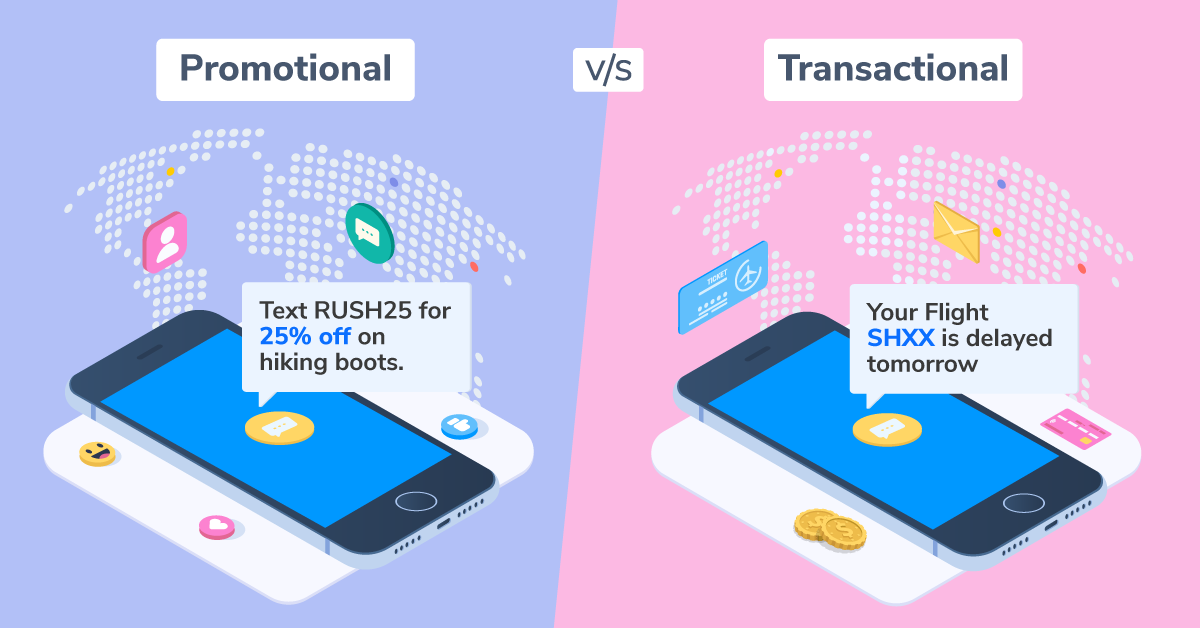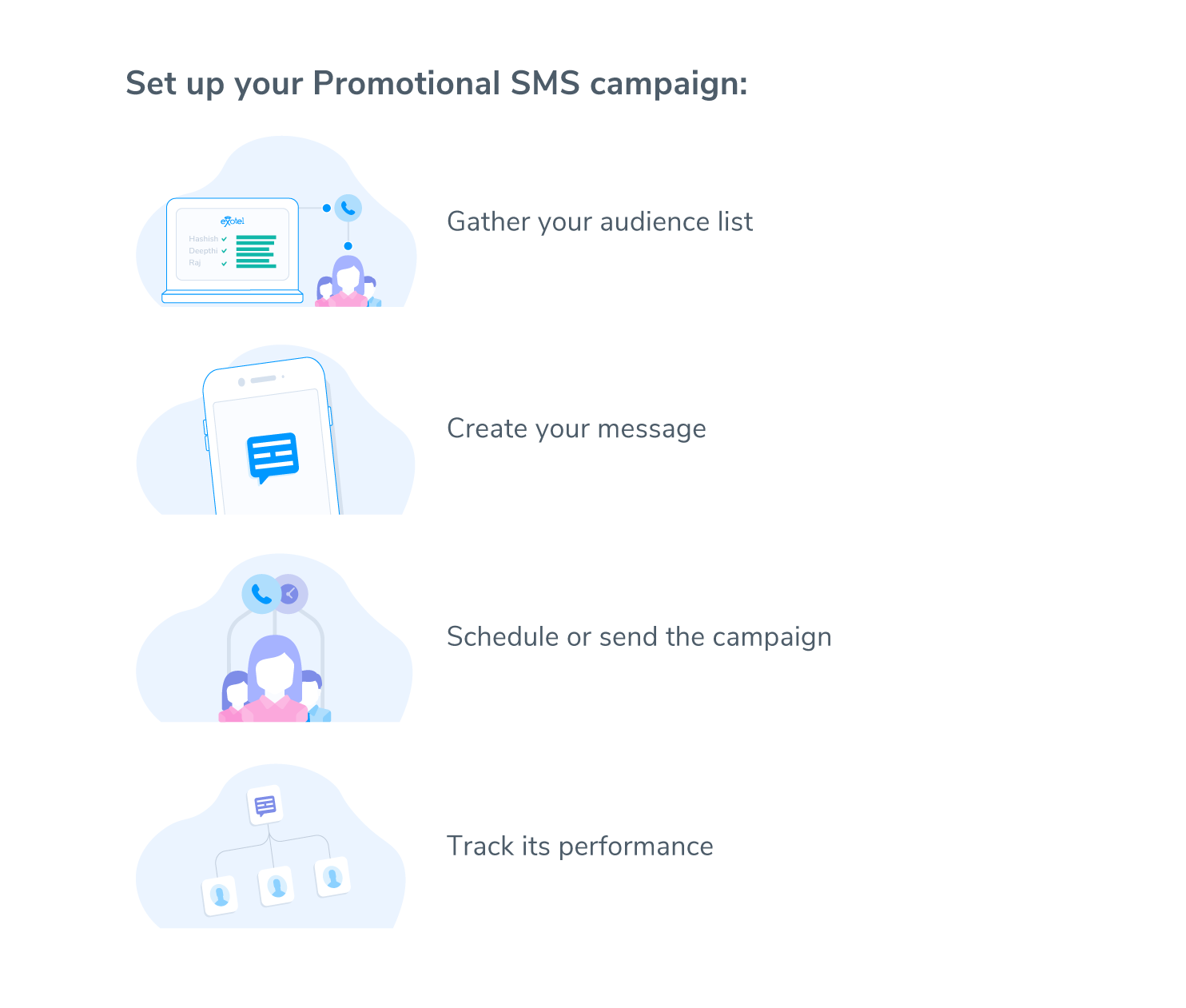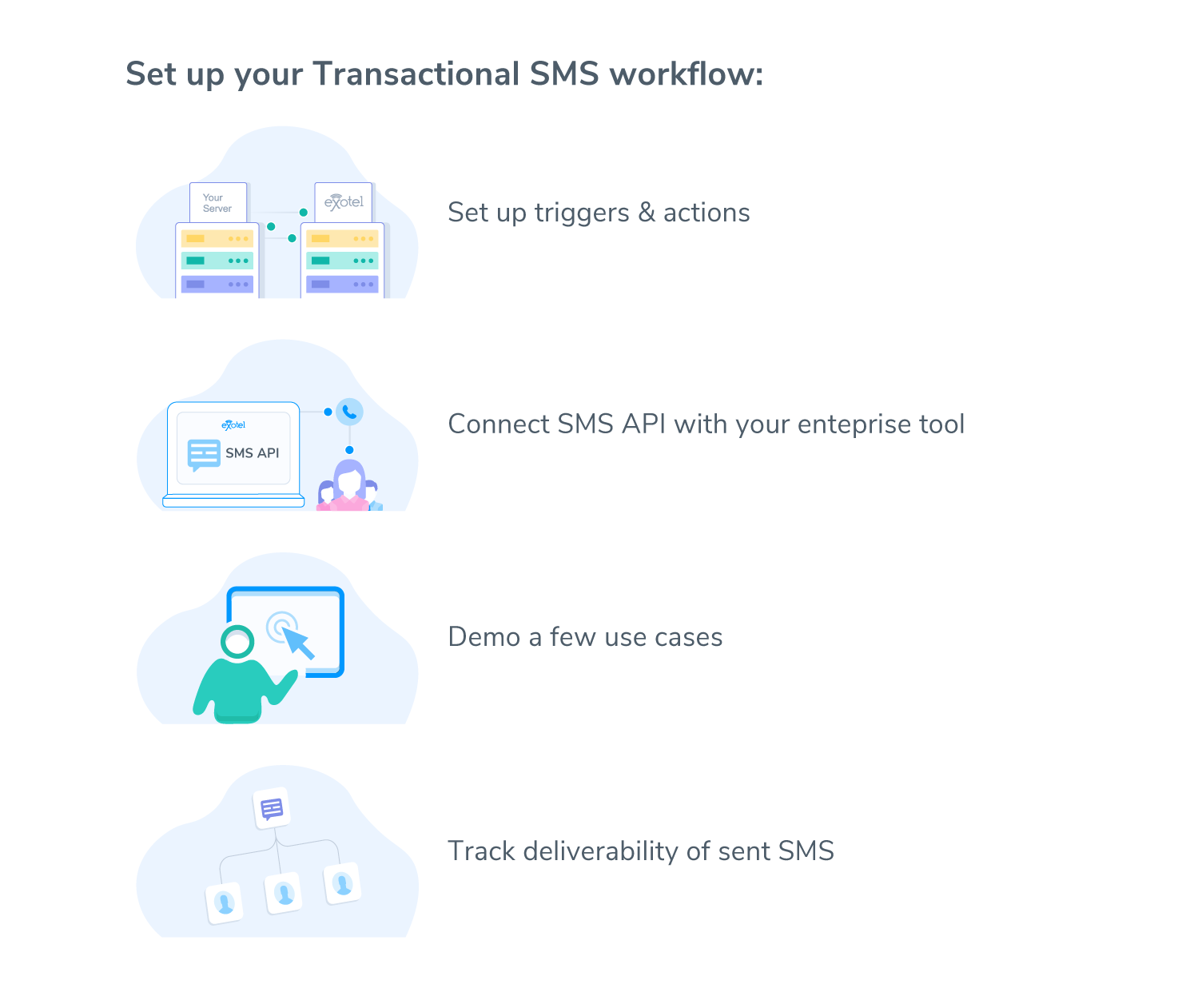 March 17, 2021
March 17, 2021 4 mins read
4 mins readShort message service (SMS) is the most feasible channel that enables your customer communication to be direct, simple, and actionable. It offers great results too – Gartner finds SMS trigger open rates of at least 98% and response rates of 45%. It quite beats what any other marketing channel delivers.
Let’s dive deeper. Promotional and transactional SMS are two primary types of business SMS. Let’s understand them in light of how you can make the best use of them in your business. This post aims to be a broad guide that helps you understand how SMSes are classified as transactional or promotional. It also points out how it affects the way your customers interact with them.
Feel free to jump straight ahead to any of the following sections:

Transactional SMS are messages majorly used for sending order and booking alerts. They are also sent to informational messages to registered customers. However, Promotional SMS is used for sending marketing and sales messages. These messages are only delivered to opt-in and non-DND numbers.
A Promotional SMS is used to drive new or repeat business. It keeps your prospects and customers informed when you are promoting new deals, offers, or discounts. You can be assured of high engagement and response rates when used with the right message and frequency around key promotional campaigns.
Speaking of response rates, SMS are usually responded to within 90 seconds versus 90 minutes for an email. For marketing teams running campaigns that require quick customer action like inviting pre-bookings before a consumer device launch, this is the best channel to use.
1. Induces prompt action: SMS notifications usually show the entire content of the message, not forcing users to put off going through it later
2. High ROI: SMS Marketing can drive almost the best cost-benefit returns than any platform can offer to drive significant sales.
3. Customisable: Target different messages to different audiences through user-friendly platforms.

1. Discount or cashback days: Create brand pull by informing your audience of special offer periods
2. Flash or clearance sales: Use the power of urgency or cutting prices on the out-of-season stock to target your audience
3. Category promotion days: Use any calendar events or create a calendar to sell particular product categories
4. Seasonal shopping periods: Promotional SMS, when sent out at the right time, alerts your audience of appealing deals
5. Product giveaways: Another crowd-pulling tactic, especially for high-value items that could be the winner’s to keep
6. Loyalty point promotions: Usually for existing customers to get more out of burning their points, or a free loyalty program membership for a product’s purchase
Transactional SMS is used to share time-sensitive information and updates for a product or service used by your customers. But it doesn’t end there. Any message that is not promotional in nature is a transactional SMS, including company policy updates that could impact its customers’ relationships with it or sudden alerts like software downtime.
These messages are usually triggered based on certain actions predefined by you and configured in your SMS vendor’s dashboard or their API with your software.
1. Dedicated SMS routes: To ensure uninterrupted delivery rates
2. Trackable: Find our metrics like delivered, open, and response rates in real-time
3. Reaches DND numbers: TRAI-mandated DND rules do no apply
4. Value for money: Can send multiple messages at low cost during the course of the customer journey

1. Product order or service communication: Confirmations, delays, modifications, etc
2. 2-Factor Authentication & Know Your Customer (KYC): OTPs for service confirmations, ID verification for financial transactions, etc
3. Delivery or downtime notifications: Shipment or service maintenance status updates, downtime alerts
4. Internal business or partner communications: Business continuity updates
1. Trackability: When it comes to lead generation, the more information you have about what’s going on with your campaign the better. Your provider should pave way for SMS users and CRM integration so that everybody can get their game on.
2. Reliability : When it comes to delivery rates, the company’s services will always be at stake as 100% delivery rates are still impossible to achieve.The provider should make sure there are no issues with delivery rates and uptimes with regards to the industry’s benchmark.
3. Scalability: During festivals and holidays, there’s a good chance that your SMS volumes will increase. With the volume of messages set to increase, your SMS campaign provider should be able scale along with you.
Ultimately, SMS is a rapidly deliverable, mobile-friendly, and cost-effective channel. By using it to send promotional or transactional information to your customers, you can grow your business faster and better. Whether you are a startup or an established business whose communication needs to be automated, we can help. Contact us or sign up for a demo today.
Check out Exotel’s industry-first no-touch two-factor authentication product
